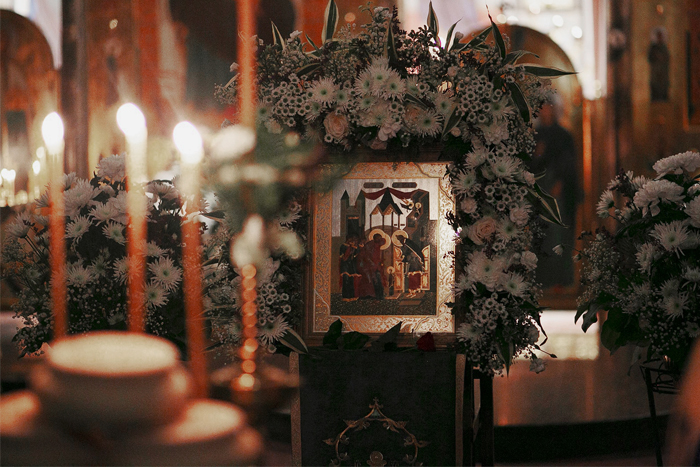
What feedback did you get after the concert?
Tatiana: I’ll begin in a somewhat roundabout way but you’ll see that it is directly related to people’s feedback. Elizabeth told us that she had left the Protestant Church 12 years before, although she had been a deaconess throughout her life. The reason for her leaving Protestantism was that the Lutheran Church had lost its “salt”, that is, its spirituality.
Indeed, we saw that at this point the Lutheran Church is run by organists. They are the ones who make up the program of divine service, decide where to cut angles and how to perform it: whether it has to be fun, sad or humorous. Imagine what it would be like if the precentor had the decisive word in our Church, “We’ll chop off a piece of service here, shorten it there, sing an upbeat song here, and you, Father, can just sit back and relax…”
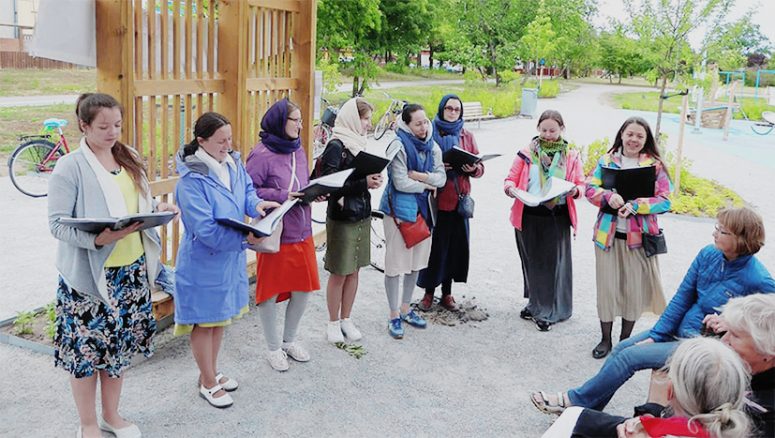
There are classical, instrumental, and even rock concerts in Lutheran churches. Unfortunately, there are no spiritual chants like ours.
Veronica: After the concert, a woman approached me and said: “You know, I’m an active member of the Swedish Church. After your concert, I was baffled that it was so joyful to glorify God, to rejoice that you are a believer, and to do something for the Church, while being young.”
Marina: Yes, I heard a lot of similar things too: “You are so young and pretty and you sing so joyfully”; “How can you praise God and be so happy?”
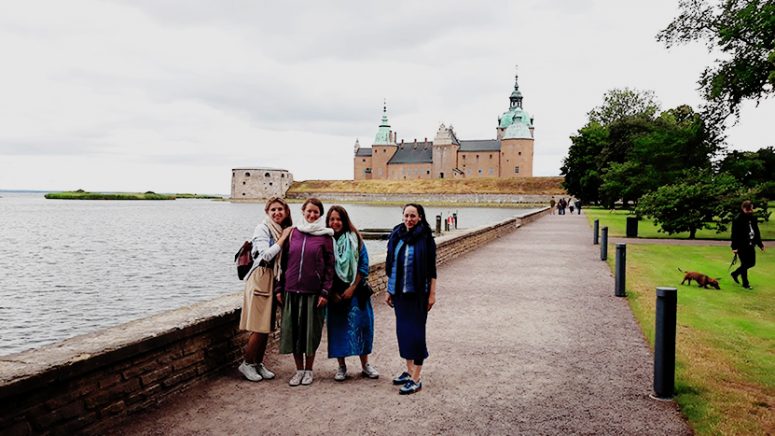
People would come and ask when we’d come back to their parish again. Some of them said, “You have to come back here!” I remember a visitor who listened to us with closed eyes, and then thanked us with warmth and joy and even asked to borrow some sheet music. He turned out to be a priest of the Swedish Church, who is interested in Orthodoxy and often visits an Orthodox monastery in Sweden.
Why do you think such international trips matter? What is the mission of such events?
Marina: It seems to me that when we go abroad and perform our concerts, people see and hear something they have never seen or heard before. It resonates with their souls because every human’s soul is Christian by nature.

Tatiana: “Mission” and “outreach” probably sound too pretentious. We have an unofficial motto: “Do not refuse what the Church has to offer”, which I heard from a priest in England who had known Archimandrite Sophrony (Sakharov) personally. It was Elder Sophrony who once told him never to turn down a request of the Church: do whatever the Church asks you to do. That’s the guideline we’re trying to follow. Our Father Andrey Lemeshonok often says, “Even a rusty wire can supply electricity.” I think God’s Providence is the reason we set out to transmit our “joyful electricity”.
We were called by friends who love our Convent very much. “The Convent in Minsk is our paradise on earth,” they say. They come here twice a year to feed themselves with grace.
What was surprising or unforgettable about this country?
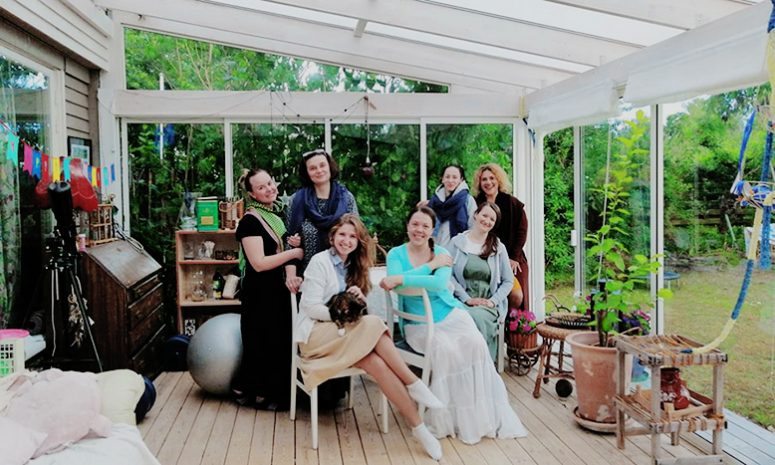
Tatiana: I liked the open-hearted, friendly people, and Swedish flags in every yard. Our friends say that the Swedes are proud of their country but they are free from nationalism; they are calm and peaceful.
Marina: We had a real vacation, we felt like children among loving relatives. We took the trip as a gift from the Lord and Saint Elisabeth, at the right hand of whom we sang akathists before the trip. After all, the woman who welcomed us in Sweden was Elizabeth, too. We call it a miracle.
We were surprised by the cold Baltic Sea and the cheerful children swimming in it, by rabbits and deer running next to people, by red houses with white windows, impeccable tidiness, and a lot of flowers. Also, there are no curtains on the windows. In a country where there is little sun, people try to catch more light.

Veronica: The level of culture and care for the person is amazing. Everything is thought over to the tiniest detail: care for the elderly and children, healthcare, ecology, transport, even movement around a supermarket. Everything is spotless. At the same time, local clergy we talked to complained that young people do not go to church at all. There are few parishioners and most of them are elderly: some go to church because of tradition and some because they just want to hang out. Priests do everything they can to attract young people. They even allow rock concerts in churches, but it doesn’t help.
I once read the following statement by Metropolitan Hilarion (Alfeev), “We can call Bach an Orthodox composer in the sense that throughout his life he was learning to praise God properly. He started his scores with the following words: “Glory to God alone”, “Jesus, help me”. What does “praising God properly” mean to you?
Veronica: It is when you have an inner life and fight for it. The struggle is often inconspicuous. It is to get up early, not to be late, not to be self-complacent, to delve deep into the lyrics, not to sing with passion, to obey the precentor, and not to argue. Choir members will understand me: that’s the kind of struggle everyone has. For example, in St. Elisabeth Church, the choir stands in front of the parishioners, and everyone is watching you. We must never forget that we are the face of the Convent. You should always be focused, always remember who you sing for and with whom you pray together. It is very important. This is what we have to learn.
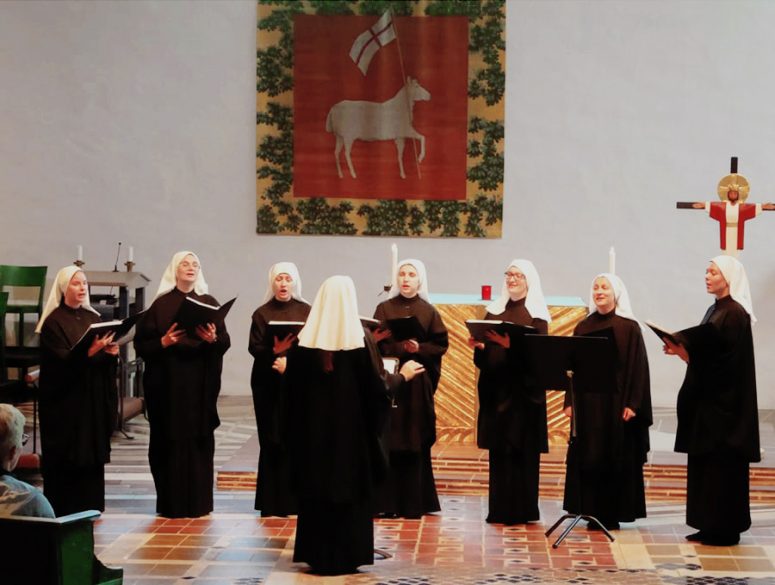
Marina: I believe that no obedience in the Church is possible without frequent Confession and Communion, because only the Lord gives strength, joy, and comfort, especially in view of our active schedules and workloads.
Tatiana: I have been singing in the church choir since I was 13. I am still discovering the Church, with all Her liturgical texts, services, feasts, lives of saints as well as all other infinite depths. All of that is a part of my life, which I cannot live without.
Since I have been in the Church for a long time, this is the fundamental rule that I have learned: do not turn obedience into a habit. Figuratively speaking, you shouldn’t kick open the door to the choir, “I’ve been Orthodox for 20 years already.” It is very easy to lose touch with reality and consider yourself a high status person. One should glorify God without giving in to his or her emotional impulses. You often have certain feelings: frustration, fatigue, sadness, or grumpiness. It isn’t always easy to be in the Church. As our priest says, you fly on wings for the first few years, and then you have to get up and walk.
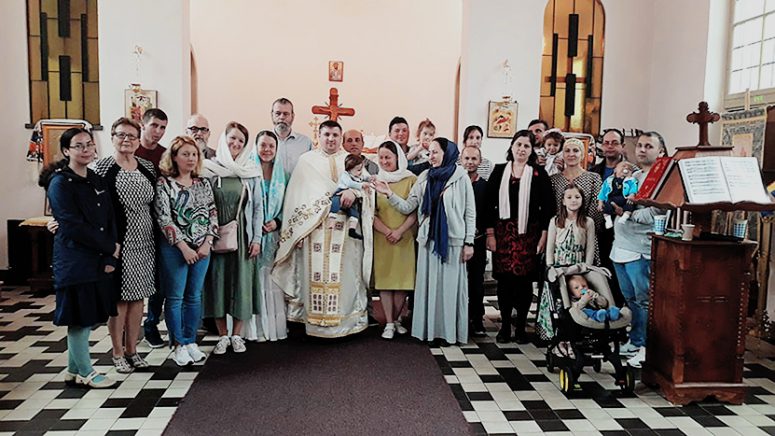
That’s what we should do: if God has blessed us, get up and move on. Fortunately, you are useful and can serve God and the Church. We should always seize the day: now is the time, here is the opportunity and the power to do something, and tomorrow it may not be possible anymore. We should really be grateful and appreciate the chances that we can lose at any moment.




